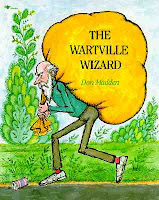Describe one of the stories in your collection.
Loneliness and the desire to be loved is one of the main themes throughout my collection. There’s a story about a somewhat lumpy, middle-aged female cargo transporter, alone in her ship day in and day out, whose mother is a mass murderer in a cryogenic prison capsule. The private correctional facility goes belly-up and the capsules are auctioned off as novelty items, and the transporter buys her mother to illegally defrost her (some 500 years before her mother’s sentence is up) in an attempt to earn her mother’s love. I’ve always been obsessed with fables and fairy tales—I remember reading, in one of my first books, the Native American legend of the little boy who picks up a rattlesnake because it promises not to bite him, and then of course it does. Even as a very young child I understood this to be an analogy for addiction, which has always been one of the primary struggles of my own life—I’m addicted to the feeling of being loved, to attention, to pretending, to lying, to possessions, to all extremes. This quality (and all the reasons, really, that we will act in ways that are counter-intuitive to our own well-being) is one of the primary seeds for my writing. The fact that we cannot help what we want is inexplicably soothing to me. It helps me refrain from judging myself, and others, so harshly.
What is your writing process like?
Forgetting to shower, forgetting to not eat bags of Oreos, forgetting to not pick at the small bumpy scar on my right arm that I cannot stop picking at when I’m stuck for the perfect word. Making my husband wish he’d married an accountant, running around the house in my underwear to pop music in the hopes that adrenaline will make the next plot step manufacture in my head, mortal reliance on the thesaurus like it’s a dialysis machine, cuddling my Chihuahua until he growls at me, opening great novels and choosing a sentence to write a follow-up sentence to, feeling like I’m running out of time, making myself laugh and laugh and laugh until finally I can tilt my head and say actually, that is extremely sad and you might be a monster.
What books made you want to become a writer?
I learned to read in a diaper before I’d mastered the art of basic vocal communication. Books and writing seemed to me like such a preferential way to communicate, and live. I’ve always been a little ashamed at the percentage of my daily life, even now, that is vicarious—reading, writing, and daydreaming consume at least 95% of my waking moments. My two favorite children’s books were The Wartville Wizard and Strega Nona, both of which include fabulist elements. I was so peeved at how non-magical the real world seemed, as opposed to what was possible in stories. I suppose I still am.
What kind of research, if any, do you do?
I push myself to be in a state of perpetual fear. Fear seems to be one of the shortest pipelines to creativity, at least for myself. I’m always reading, watching, or looking at horrific things. It puts me in a state of unbalance that is best brought to equilibrium through writing. There is such terror and cruelty in the world; writing and humor are the only catharsis I’ve encountered that is even moderately effective. After I write, I feel like I just shaved my head after growing out my hair for seventy years. It’s a lightness I’ve never felt anywhere else. No drug, sunset, or success can replicate the feeling.
I also read. I’m competitive, and any good book makes me want to start writing. I have no filter, though, so I often get distracted around reading materials—I’ll read entire nutrition textbooks, shoe catalogues, studies on volcanic rock analysis, hair dye instructions in languages I do not know. Although I’ll often read up on specific things for the novel I’m writing now, some of my best research is just cultural osmosis. I try to absorb as much of what’s around me—the good the bad and the neutral—as possible.

